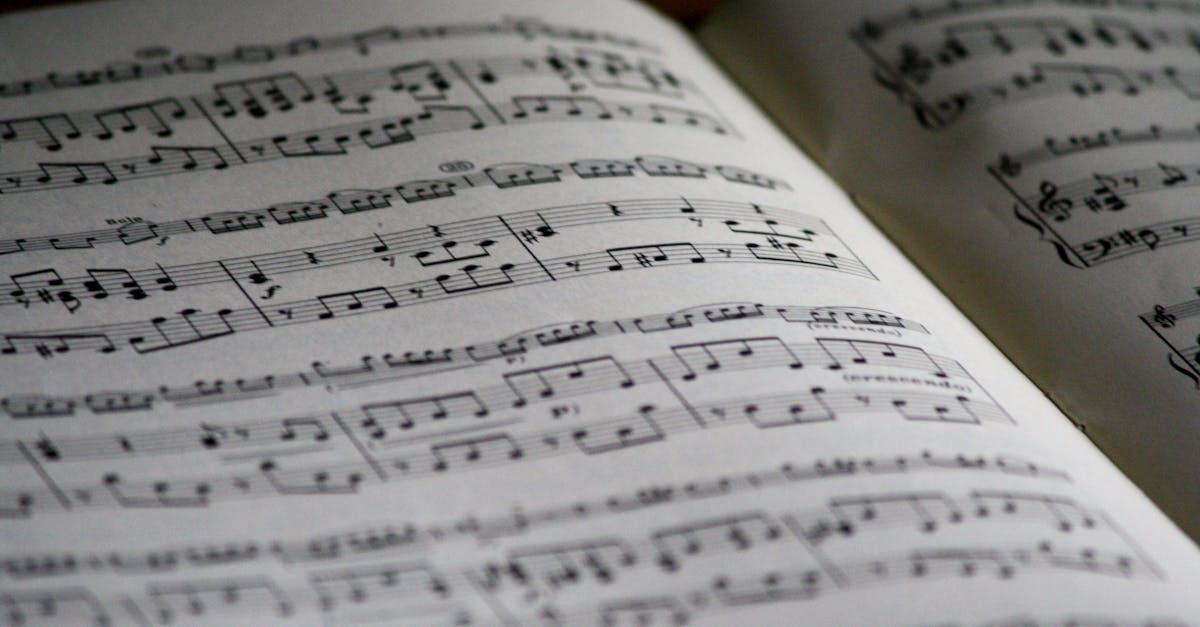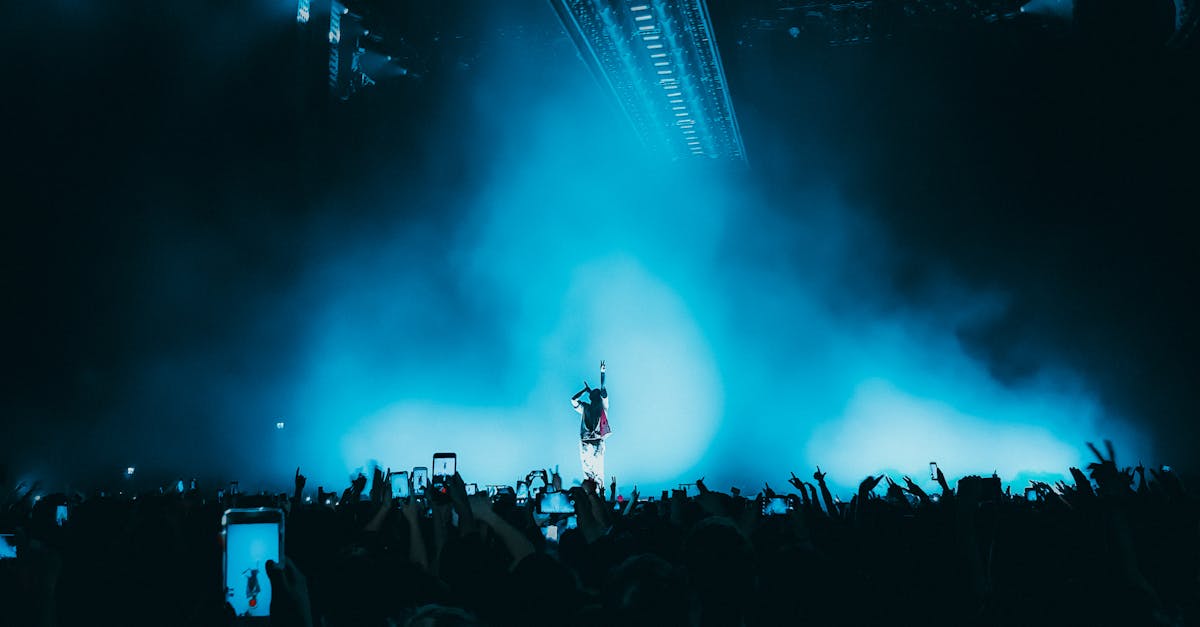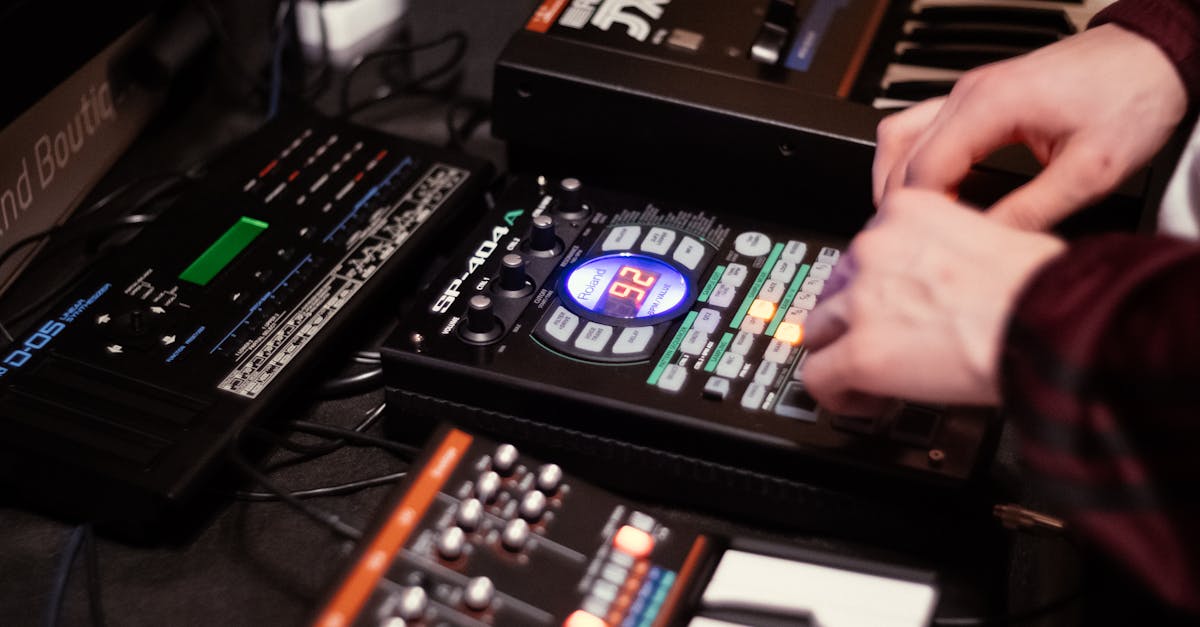AI Influence on Modern Music Production
Introduction
In today's ever-evolving technological landscape, artificial intelligence (AI) stands at the forefront of myriad industries, including music production. AI's influence extends beyond simple automation to redefining how music is created, composed, and produced. Whether it's through generating lyrics or creating complex harmonies, AI offers new possibilities for musicians and producers alike. The use of AI in music is not just a trend; it's reshaping the very core of how we conceive and experience music. As artists continually explore these technological frontiers, the boundaries between human creativity and machine learning become increasingly blurred. This article delves into the multifaceted role of AI in revolutionizing modern music production.
Advertisement
AI in Music Composition
AI's role in music composition is transforming traditional approaches, encouraging innovation and creativity. Through machine learning algorithms, AI can analyze vast quantities of music data to identify patterns, replicating styles while generating new compositions. Platforms like OpenAI's MuseNet and Google's Magenta project demonstrate AI's ability to produce music across various genres, styles, and complexities. Musicians can now collaborate with AI to experiment with different themes, enhancing their creative processes. Importantly, AI's capacity to compose music is making it accessible for those without a traditional music education, democratizing the industry. This fusion of technology and creativity leads to unforeseen musical landscapes.
Advertisement
Advancements in Songwriting
AI has infiltrated the realm of songwriting, providing artists with tools to enhance or even automate lyric creation. Developments in natural language processing enable AI systems to generate compelling and emotionally resonant lyrics. Programs such as Lyrics Intelligence and AIVA offer musicians the capability to personalize lyrics, maintaining artistic integrity while leveraging AI's systematic approach. These technologies can act as co-writers, inspiring artists through suggestion and collaboration rather than replacement. This auxiliary role of AI in songwriting shifts the focus from labor-intensive creation to inspiration, allowing artists to focus more on performance and style.
Advertisement
Enhancing Music Production
AI's application in music production involves optimizing processes, from sound design to mixing, by analyzing and learning from vast datasets. Intelligent systems can suggest edits, mix tracks autonomously, and even master audio, significantly reducing production time. Advanced AI tools from companies like LANDR and iZotope facilitate seamless integration into existing production setups. The algorithms can evaluate music's tonal quality, suggesting enhancements for a polished sound. By automating routine tasks, AI enables producers to concentrate on innovation and creativity, accelerating music production and elevating sound quality across genres.
Advertisement
AI's Role in Music Recommendation
AI's impact extends beyond production to help listeners discover music through sophisticated recommendation systems. Streaming services such as Spotify and Apple Music employ AI algorithms to analyze user behavior and preferences, curating personalized playlists. This technology enhances user engagement by delivering tailored content that suits individual taste profiles. As AI continuously learns from user interactions, recommendations become more accurate, introducing listeners to new artists and genres. This data-driven approach has reshaped the music discovery experience, promoting a diverse range of voices and expanding audience reach. Consequently, AI plays a pivotal role in facilitating musical inclusivity and diversity.
Advertisement
The Ethical Implications
The growing role of AI in music raises various ethical concerns, particularly regarding creativity, authenticity, and copyright. Artists often worry about AI potentially diluting human creativity and what this means for originality. Further, questions surrounding authorship and intellectual property rights emerge, challenging traditional notions of ownership in music. To navigate these complexities, industry leaders advocate for a collaborative framework where AI acts as an enhancement rather than a replacement. Finding a balance between innovation and ethical considerations is crucial to fostering an industry where creativity can thrive unencumbered. Addressing these concerns will be essential as AI continues to integrate into music production.
Advertisement
AI in Live Music Performances
AI's foray into live performances has introduced novel ways of engaging with audiences. By leveraging AI-driven instruments and visual effects, artists can deliver immersive and interactive experiences. AI can analyze live data on audience engagement, allowing musicians to adjust their performances in real-time. Innovations such as holographic performers and AI-powered stage lighting systems redefine concert experiences, transcending traditional performance boundaries. Consequently, AI transforms the dynamic between artists and their audiences, offering novel ways to experience live music. These advancements promise to elevate live shows, enriching how we perceive and participate in musical events.
Advertisement
The Future of AI in Music
Looking ahead, AI is poised to further reshape the music industry, with potential innovations spanning more intelligent composition tools and immersive listening experiences. Emerging technologies such as VR and AR, coupled with AI, offer new dimensions for audience interaction. Furthermore, advances in deep learning and neural networks predict more sophisticated capabilities for AI in interpreting emotions and complex musical textures. Collaboration between technology developers and musicians will likely drive these innovations, ensuring AI's potential is fully realized. The convergence of AI and music heralds an exciting future, where technological advancement amplifies rather than hinders human creativity.
Advertisement
Broader Cultural Impact
AI's influence on music transcends production, affecting cultural trends and audience engagement strategies. As AI-generated music gains traction, it challenges industry norms, altering how music is consumed and appreciated globally. These shifts encourage a reevaluation of cultural narratives, as AI-driven music blurs classic definitions of artistry, potentially redefining music history's unfolding chapters. AI's ability to analyze cultural trends can predict emerging genres and styles, fostering a cycle of continuous innovation and inclusivity in the music landscape. The broader cultural implications of AI in music offer a rich dialogue about technology's role in shaping human expression.
Advertisement
Conclusion
AI is undeniably a transformative force in the domain of modern music production, merging creativity with technology in unprecedented ways. From composition to live performances, AI enhances every facet of the musical experience. As AI continues to advance, its integration into music will require careful navigation of ethical concerns, ensuring creativity and authenticity remain paramount. By embracing this technological evolution, the music industry stands on the brink of a new era, where innovation and artistry go hand in hand. Indeed, the synthesis of human insight and machine intelligence promises a future where music can reach new echelons of artistry and imagination.
Advertisement


